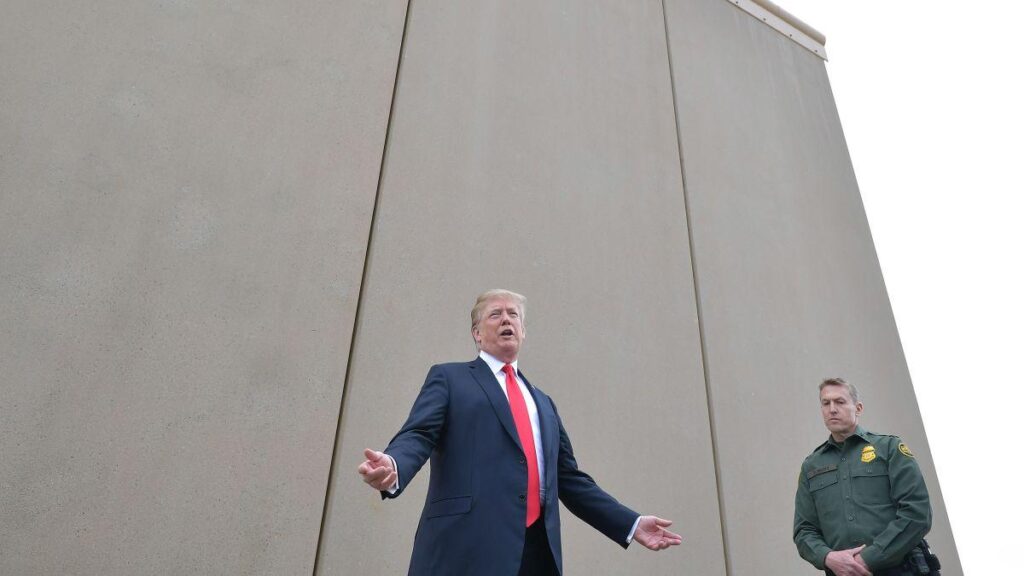In a surprising turn of events, President Trump has suggested using US troops to aid in the deportation of immigrants. This controversial proposal, which would involve invoking the Insurrection Act, has sparked debate and concern across the country. As tensions rise, many are left wondering what this could mean for the future of immigration enforcement in the United States.
Potential implications of using US troops for deporting immigrants under the Insurrection Act
Using US troops to deport immigrants under the Insurrection Act could have significant implications on both a domestic and international level. Here are some potential consequences:
- Humanitarian crisis: The use of military force to deport immigrants could lead to a humanitarian crisis, with families being separated and individuals facing dangerous conditions during the deportation process.
- Violation of civil liberties: Using the military for immigration enforcement could run afoul of constitutional protections and civil liberties, raising concerns about government overreach and abuse of power.
| Implication | Description |
|---|---|
| Increased tension with other countries | The use of US troops for immigration enforcement could strain diplomatic relations with other countries, potentially leading to international backlash. |
| Legal challenges | Invoking the Insurrection Act for immigration purposes may face legal challenges, further complicating the enforcement process and potentially delaying deportations. |
Legal concerns surrounding the deployment of US troops for immigration enforcement
The possibility of deploying US troops for immigration enforcement raises numerous legal concerns, particularly if President Trump invokes the Insurrection Act. This act allows the President to deploy troops on American soil to suppress civil disorder, insurrection, and rebellion, but using it for immigration enforcement purposes is highly controversial.
Some of the legal concerns surrounding this potential deployment include:
- The Posse Comitatus Act, which prohibits the use of federal military personnel in domestic law enforcement, except in specific circumstances.
- The Fourth Amendment protections against unreasonable searches and seizures for immigrants facing deportation.
Public reaction and political consequences of utilizing the Insurrection Act for immigration control
Amidst escalating tensions over immigration control, the possibility of utilizing the Insurrection Act to deploy US troops for deporting immigrants has sparked a flurry of reactions and raised concerns about the potential political consequences. The prospect of such a drastic measure has polarized the public and ignited debates across the country.
Key points of public reaction and political consequences include:
- Proponents argue that using the Insurrection Act is necessary to strengthen border security and enforce immigration laws.
- Opponents express outrage over the militarization of immigration enforcement and fear the violation of civil rights.
- Legal experts debate the constitutionality of deploying the military for immigration control.
Recommendations for alternative approaches to immigration enforcement to avoid invoking the Insurrection Act
When it comes to immigration enforcement, there are several alternative approaches that can be considered before resorting to invoking the Insurrection Act. One recommendation is to invest in more resources for border security, such as increasing the number of border patrol agents and implementing new technologies to monitor and secure the border more effectively. Additionally, improving the efficiency of the immigration court system can help expedite the processing of cases, reducing the backlog and allowing for quicker resolution.
Another approach is to focus on addressing the root causes of migration, such as poverty, violence, and lack of economic opportunities in migrants’ home countries. By working with international partners and implementing development programs, the United States can help create more stable and prosperous conditions in these regions, reducing the need for people to migrate in the first place. Ultimately, a comprehensive and humane immigration policy that prioritizes diplomacy, cooperation, and compassion is key to avoiding the need to deploy US troops for deportation purposes.
Concluding Remarks
As the debate over immigration policy and military involvement continues to intensify, the possibility of US troops being used to deport immigrants under the Insurrection Act looms large. The potential consequences and implications of such a decision are vast and complex, sparking strong opinions and emotions on all sides. Only time will tell what direction this contentious issue will take, but one thing is certain: the intersection of immigration, the military, and governmental authority will remain a hotbed of discussion and debate for the foreseeable future. Stay tuned as this story unfolds, and continue to engage in the important conversations surrounding these critical issues.


